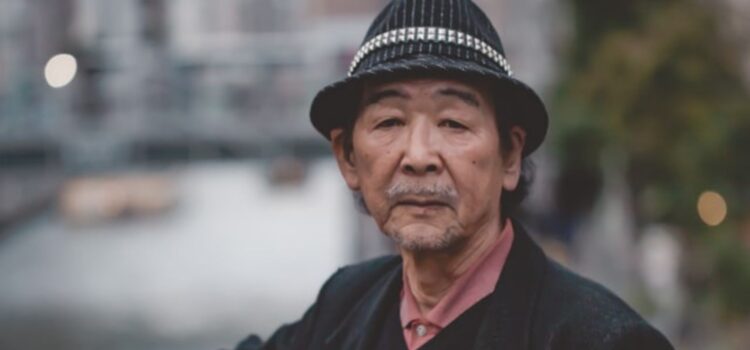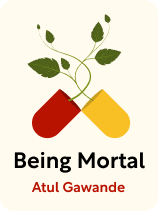

This article is an excerpt from the Shortform book guide to "Being Mortal" by Atul Gawande. Shortform has the world's best summaries and analyses of books you should be reading.
Like this article? Sign up for a free trial here.
Is frailty a normal part of aging? How can we ease the elderly’s burden of living with frailty?
Because more of us reach old age than ever before, we live longer with its frailty. Worn out from long use, our bones lose density, our skin thins, and our organs begin to malfunction. Accustomed to medicine’s ability to restore our health, we aren’t prepared to live with these inevitable infirmities.
Here’s why we should redirect our efforts to managing aging and frailty instead of attempting to cure the incurable.
We Live With Frailty Longer but We Don’t Manage It Well
While modern advances help us avoid infection, disease, and accidents better than ever, they haven’t stopped the natural aging process. According to Atul Gawande, the author of Being Mortal, we usually deal with the symptoms of aging as if they can be reversed, but they can’t. He argues that we need to accept the deterioration of the body as natural and focus on supporting the elderly as they face limitations, not on curing them of frailty and aging. Unfortunately, non-specialist physicians—accustomed to curing patients through medical interventions—are usually the ones caring for the elderly.
(Shortform note: Gawande’s observation echoes a case disability activists have been making for a long time. They’ve argued that accessibility should be everyone’s concern because we’ll all need it eventually: Half of all Americans over 75 have some form of physical or mental impairment that qualifies as a disability under the Americans with Disabilities Act.)
According to Gawande, these physicians often fail to address the everyday physical and emotional challenges of aging. They may focus on blood pressure fluctuations while overlooking poor hygiene caused by reduced flexibility or weight loss caused by loneliness. Gawande suggests that basic needs, such as the ability to get in the shower or enjoy a meal with loved ones, are more critical to an old person’s daily well-being than are the narrow medical issues most doctors focus on.
(Shortform note: The basic needs Gawande discusses are critical to an aspect of well-being experts call environmental mastery—the ability to navigate physical spaces and meet personal needs. Research increasingly shows that environmental mastery correlates to psychological well-being and that well-being correlates to healthier aging. As Gawande suggests, then, it’s important for caretakers to devote at least as much attention to the basic needs of the aged as they do to other medical issues.)
Geriatricians Are Needed but Uncommon
Geriatricians are medical specialists trained to support the elderly in this way, explains Gawande. These physicians are skilled at identifying the problems caused by aging—for instance, the difficulties the elderly may have with hygiene, eating well, maintaining social contact, and controlling aches and pains. They can provide resources to make bathing easier or ensure the elderly are eating regularly. By closely watching and addressing these everyday problems, geriatricians help the elderly maintain their quality of life as their bodies age.
Unfortunately, the elderly often don’t have access to geriatricians: Gawande laments the fact that the number of geriatricians has fallen despite the fact that the elderly population is growing.
(Shortform note: In contrast to Gawande’s point here, recent data indicates that the supply of geriatricians is growing and is projected to increase in the near future. However, the supply isn’t keeping up with demand: The growth of the elderly population is far outpacing the growth of the geriatrician field.)

———End of Preview———
Like what you just read? Read the rest of the world's best book summary and analysis of Atul Gawande's "Being Mortal" at Shortform.
Here's what you'll find in our full Being Mortal summary:
- What it's like to age and die in the 21st century
- Why we need to be better at accepting death
- How to improve the well-being of the aging and dying






